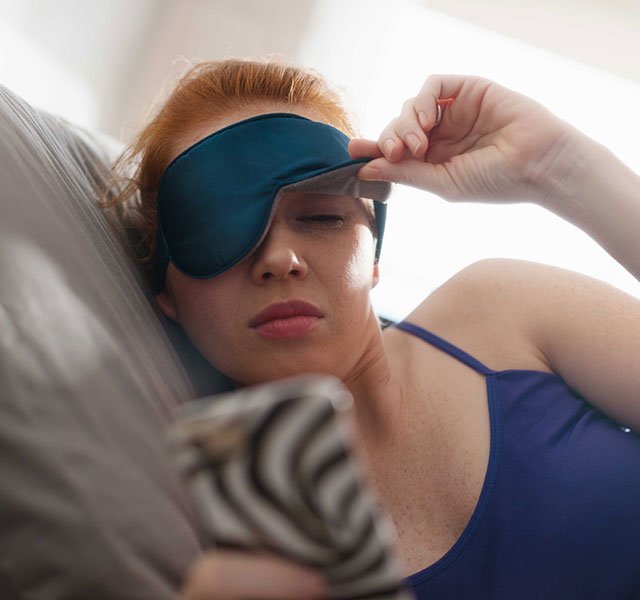Daylight Saving Time arrives this weekend, and while setting your clocks ahead an hour is unavoidable, you can minimize the sleep disruptions and groggy days sometimes associated with it.
These proactive tips may help:
- Make an effort to be well-rested going into the week of the time change.
- A few days before the time change, go to bed 15 minutes earlier than usual. Each night, increase that by 15 minutes until you are going to bed close to a full hour earlier.
- Avoid sleeping in an extra hour. This will only make the transition more difficult in the long run.
- Aim to go to bed and wake up at the same time each day — including weekends — to help your body regulate your sleep cycle.
“Do not underestimate the power of sleep. For good overall health, adequate sleep is essential,” says pulmonologist and sleep disorders specialist Robert Albertson, M.D. “Sleep affects our metabolism and appetite, our mood, our perception, judgment and productivity, and even our body’s ability to fight off infection. A well-rested person also has an easier time understanding and remembering new things.”
If you’ve tried the proactive tips and you’re still significantly behind in your sleep after setting the clock ahead, talk with your doctor. You and your doctor can explore options, such as creating a new sleep routine, changing your sleep environment, using medication or natural remedies, increasing physical activity or undergoing a sleep study. Try to be patient with the process of finding the combination that works best for you. Making restful nights a priority will reward you by making every day better.
Tips to Help Your Child Through the Time Change
That one hour loss of sleep can impact your child’s attention span, appetite and overall mood.
These tips may help every member of your family have sweet dreams:
- Bump bedtime back. To prepare for the inevitable, consider a gradual approach to help your child ease into the upcoming time change. About a week before clocks move forward, begin shifting your child’s bedtime by 15 minutes (for example, instead of 8:30 p.m., push it back to 8:15, then 8 and so on until you’ve bumped bedtime back an hour).
- Take a light approach. Our body’s internal clock induces sleep as darkness falls each night and lifts with daylight. The time change can throw off this natural cycle. You can help by dimming the lights (and turning off electronic devices) in your child’s bedroom about 30 minutes before bedtime. In the morning, lift the blinds, turn on the lights in your house and get your child in the sunshine to encourage alertness.
- Stick with what you know. Following your usual bedtime routine will also help your child shift into sleep mode more easily. So, whether it’s a warm bath, snuggle time, reading a story or listening to gentle music, keep your child’s pattern as close to “usual” as possible.
To schedule an appointment with your primary care provider, visit henryford.com or call 1-800-HENRYFORD (436-7936).
If you’re in the Jackson area or south central Michigan, call 1-888-862-DOCS.
Dr. Robert Albertson is a pulmonologist and sleep disorders specialist with Henry Ford Health in Jackson.



